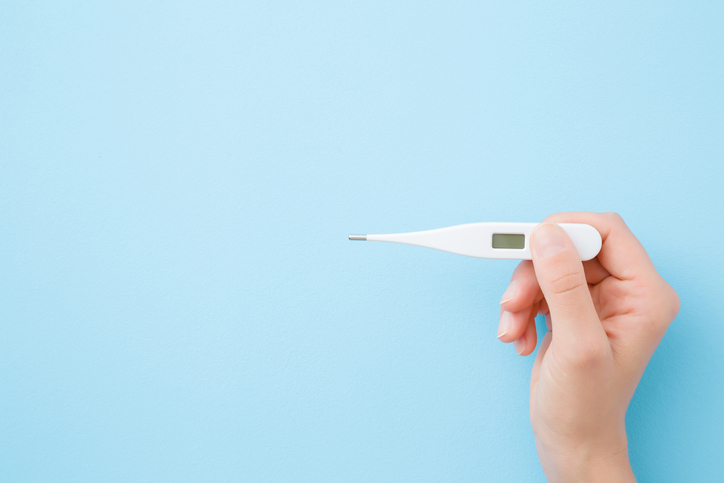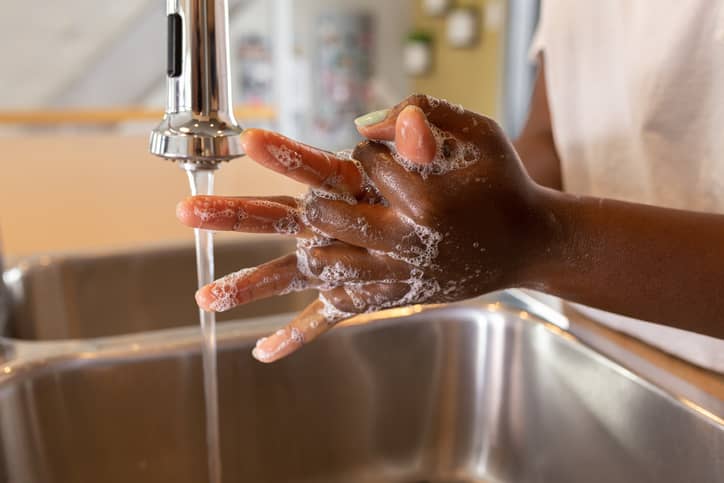If you have symptoms such as sickness and diarrhoea, it can be difficult to know if they’re caused by food poisoning or a stomach bug.
The good news is that treatment is similar for both illnesses. Even if you’re not sure which you have, you’ll usually be able to look after yourself at home.
But understanding how you got ill in the first place may help you make changes to avoid getting sick in the future.
Read on to learn more about the differences between a stomach bug and food poisoning, from causes and symptoms to treatment and prevention.
Causes
Food poisoning
Food poisoning is caused by eating something that’s been contaminated with germs, such as bacteria. This can happen if food isn’t stored or cooked properly, or is past its use-by date.
So if you notice that you become ill after eating a certain food or at a particular restaurant, for example, you may have food poisoning.
Stomach bug
It can be difficult to work out the exact cause of a stomach bug, because they spread so easily.
They’re usually caused by a virus such as norovirus, which you can catch from close contact with an infected person or by touching a surface with the virus on it, then touching your mouth.
It’s also possible to get a stomach bug from eating food that’s contaminated with norovirus.
Symptoms
Food poisoning and stomach bug symptoms are similar and can include:
- feeling sick (nausea)
- vomiting
- diarrhoea
- a high temperature (fever) of 38°C or more
- aches and pains
However, food poisoning can sometimes be more severe and is more likely to cause a high fever than a stomach bug. Some types can also cause other symptoms, such as bloody diarrhoea.
Not only can you sometimes feel worse with food poisoning, but your symptoms may last longer, too. While it usually takes 2-3 days to start to feel better from a stomach bug, it can take a week to get over food poisoning.
There can also be a difference in when you start to get symptoms. With a stomach bug, you’ll usually feel ill a day or 2 after being infected. With food poisoning, symptoms typically appear within a few days, but it can sometimes only be a matter of hours, or even a few weeks.

Treatment
Whether it’s food poisoning or a stomach bug, you’ll usually start to feel better in a few days and won’t need to see a doctor.
The recommended treatment is very similar and includes:
- rest
- drinking plenty of fluids to avoid dehydration
- eating small, light meals if you can, and being guided by your appetite
However, you should seek medical advice if you:
- are worried about a baby under 12 months or a child under 5 years
- are pregnant, over 65 or have a weakened immune system
- are unable to keep liquids down for more than a day
- are not getting better after a few days
- notice blood in your poo
- have signs of severe dehydration, such as a dry mouth and producing very little urine
- have symptoms such as double vision, slurred speech or confusion
Get emergency medical help if you:
- think you might have swallowed something poisonous
- are vomiting blood or your vomit is bright green, yellow or looks like ground coffee
- have a stiff neck and pain when looking at bright lights
- have a sudden severe headache or stomach ache
Prevention
Food poisoning
To prevent food poisoning, it’s important to maintain good food hygiene. This includes:
- cooking or reheating food properly – particularly meat such as chicken or pork
- storing food correctly – for example, in a fridge with a temperature below 5°C
- not eating food that is past its use-by date or has been out of the fridge for too long
- avoiding ‘cross-contamination’ – for example, raw meat coming into contact with food that isn’t going to be cooked, such as salad
- washing your hands with soap and water before handling, preparing or eating food
Stomach bug
To prevent stomach bugs, you can help stop the spread of the viruses that can cause them by:
- regularly washing your hands with soap and water, particularly before eating or touching your face
- avoiding contact with someone who is unwell
- regularly cleaning surfaces such as kitchen worktops
- staying away from work or school until at least 48 hours after the last episode of vomiting or diarrhoea

Key points
- it can be difficult to know if you have food poisoning or a stomach bug, as the symptoms are very similar
- the most common symptoms are vomiting and diarrhoea, while you may also have a temperature and aches and pains
- with food poisoning, your symptoms may start sooner, last longer and be more severe
- both illnesses can usually be managed at home with plenty of rest and fluids
- if you don’t start to feel better after a few days, speak to your doctor
- good hygiene, including regularly washing your hands and cooking food properly, can help you avoid food poisoning or a stomach bug




